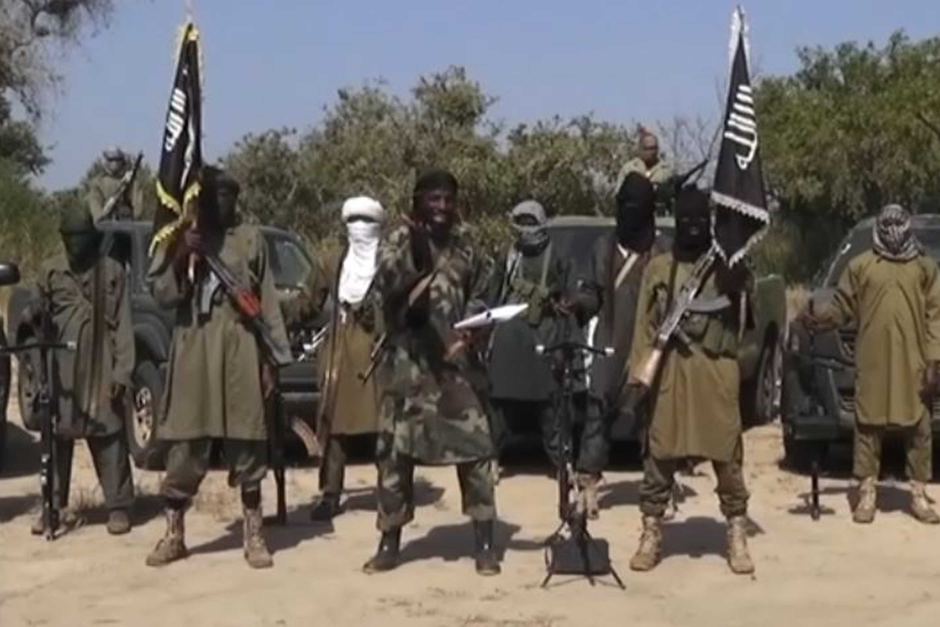Boko Haram Kills Again
Boko Haram

NEW DELHI: The Nigerian military has yet again promised to fight Boko Haram, as the militant group led another deadly attack in the northeast of the country, killing around eight people on Sunday. At the same time, a new report indicated that Boko Haram is the deadliest militant group in the world, with a combined total of 6644 recorded casualties.
On Sunday, a suicide bomber, probably a 20-year-old woman, detonated her explosives among internally displaced people who were arriving in the city of Maiduguri. “Preliminary investigation has revealed that actually the female suicide bomber wanted to commit more havoc by joining other internally displaced persons going about their businesses, possibly with the intent of even going to the city [of Maiduguri],” Nigeria’s military spokesperson Colonel Sani Kukasheka Usman said.
This year, Boko Haram claimed responsibility for a number of attacks in Nigeria and its neighbouring countries, Cameroon, Chad and Niger, all of which have joined an offensive against the group.
In September this year, the International Organization for Migration revised previous figures of 1.5 million to over 2.1 million internally displaced persons in northeast Nigeria. "The recent spike in attacks by insurgents triggered the increase," the IOM said, referring to an increase in violent attacks by the militant group in recent months. "The increase...can be attributed to the intensification of attacks carried out by the insurgents, as well as to improved access to previously inaccessible areas of Borno state, where the IDP population is now well over 1.6 million," IOM said.
In fact, the impact of the violence unleashed by Boko Haram has disappeared from headlines altogether, with the world at one point being obsessed with the #BringBackOurGirls movement. The movement referred to the kidnapping of over 300 schoolgirls by Boko Haram, with the incident dominating headlines.
Since then, Boko Haram have gained in strength, with over a thousand people having been killed since President Buhari assumed power in Nigeria end of May. Buhari’s vistory was linked directly to the menace of Boko Haram, with many of the belief that former President Goodluck Jonathan was not doing enough to rein in the militants. The change in government has done little to tackle Boko Haram.
Despite the violence continuing, and the number of IDPs exponentially increasing -- the world has remained largely silent, with the Boko Haram insurgency being relegated to the inner pages of publications.
The origins of Boko Haram, the official name of which is Jama'atu Ahlis Sunna Lidda'awati wal-Jihad, which in Arabic means "People Committed to the Propagation of the Prophet's Teachings and Jihad", sheds light on the specific social-economic context that has determined developments. As parts of Nigeria fell under British control in 1903, locals came to view western education with suspicion, and this resistance continued as Nigeria gained independence, with many muslim families refusing to send their children to government run “western schools.” The problem was compounded by the lack of priority given to education by the state government.
Located in this context, in 2002, Muslim cleric, Mohammed Yusuf, formed Boko Haram in Maiduguri with the intention of setting up a religious complex, which included a mosque and an Islamic school. Many families across Nigeria and the region enrolled their children in Yusuf’s school. The movement did not remain restricted to education, with the eventual aim of an Islamic state being conceived within the struggle for power that was rooted in an anti-western discourse. In 2009, the group carried out a series of attacks on official buildings in Maiduguri. The group was defeated and Yusuf was killed, but fighters regrouped and in 2010, attacked a prison in Bauchi state, setting free hundreds of the groups’ supporters.
Since then, the group’s attacks have increased in severity.The context is far more complicated than a mere religious rendering can do justice to. Nigerian American author and columnist offered a voice of reason when he tweeted: “I understand the impulse to "do something." But Boko Haram is irreducibly complex. Makes Kony look like child's play” and “The history of the Nigerian military "doing something" about Boko Haram has been one of mass murder of civilians.”
Tackling Boko Haram involves reducing the region’s chronic poverty and building an education system which gains the support of local muslims - measures which are not being given priority by anyone in Nigeria or outside.



